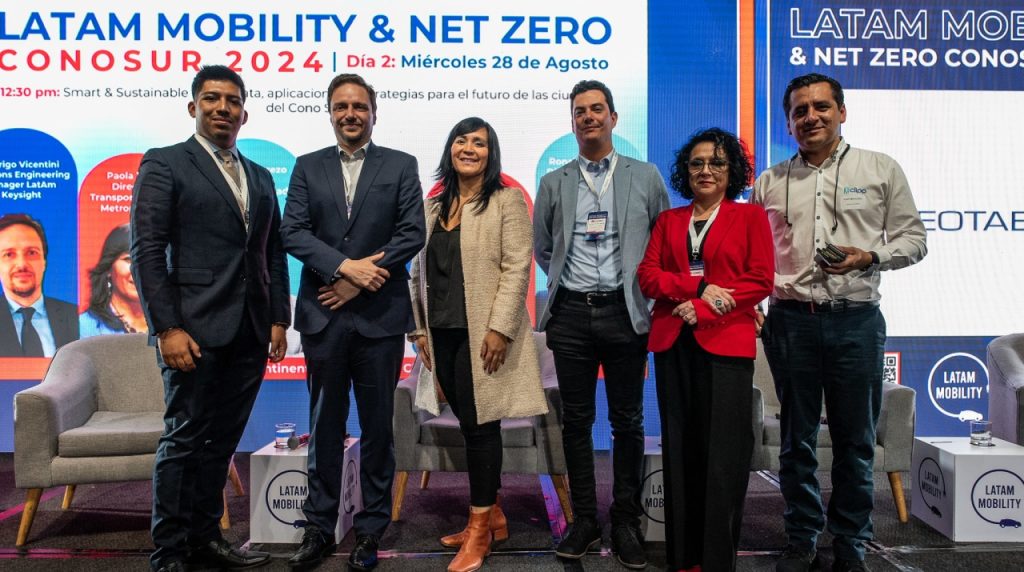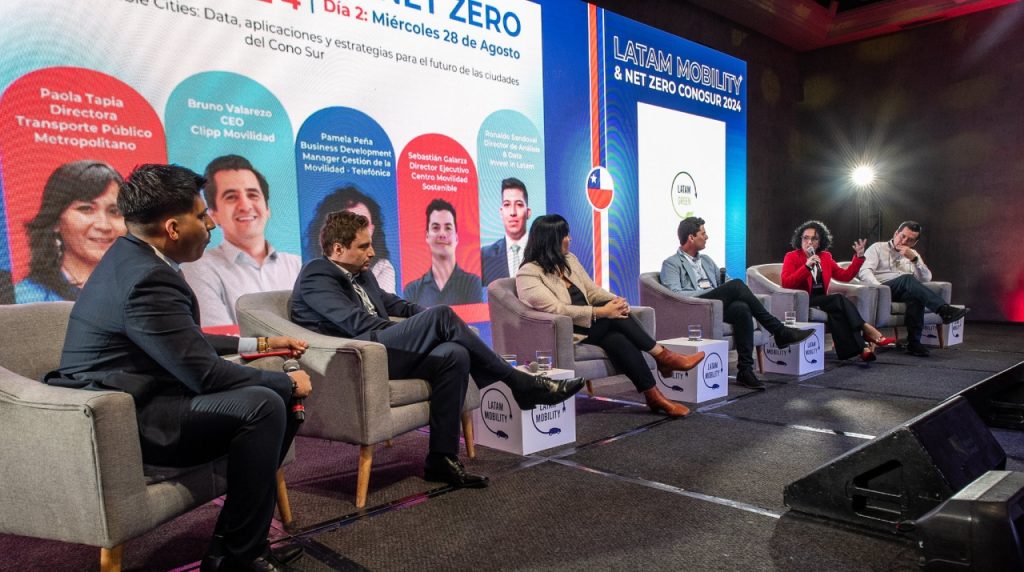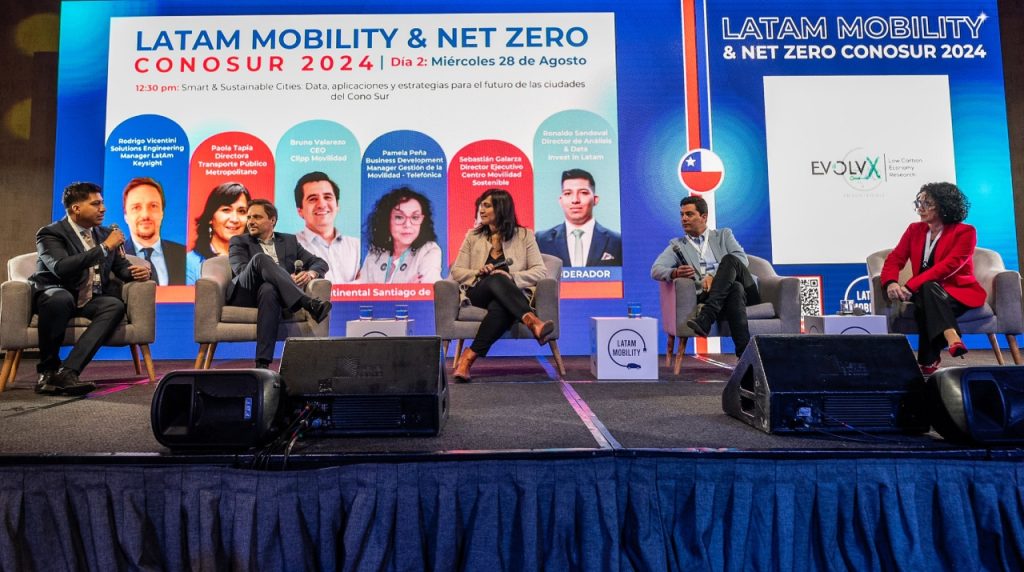
Latam Mobility & Net Zero Cono Sur 2024: Experts and Leading Companies Present Perspectives for Smart Cities

Technology and interconnection of cities play a fundamental role in the development of large metropolises. In this sense, the “Latam Mobility & Net Zero: Cono Sur 2024” presented the panel “Smart & Sustainable Cities: Data, Applications and Strategies for the Future of Southern Cone Cities”.
Paola Tapia, Metropolitan Public Transport Director of Chile, considers the use of technologies for modern, efficient and safe transportation to be fundamental.
She explained that in order to achieve an optimal renovation of buses towards electromobility, it is essential to achieve alliances between all the actors.
Tapia emphasized that transportation must integrate processes such as fleet management for quick reaction to contingencies, payment systems through QR codes, together with trained human resources.

All in Clipp Maas’ App
Bruno Valarezo, CEO of Clipp Mobility, highlighted the progress the company has made to present a range of solutions in a single technology.
“We work on two lines: digitizing mobility, placing technology on cabs, buses, parking systems and bringing it all on a single Mobility as a Service platform, integrating mobility actors on a single platform and digitizing their payments,” she explained.
Clipp MaaS opened in Santiago, Chile, to add its sixth country with operations of this leading platform that drives sustainable mobility in Latin America.
Through its high innovation Clipp allows to search, schedule and use different transportation alternatives connecting users with the mobility of their cities.
Rodrigo Vicentini, Solutions Engineering Manager LatAm at Keysight, spoke about their extensive experience in innovation for smart and connected cities.
He explained that Keysight is the first company in California founded as HP that is now in its 10th year leading electrical and electronics. “We help whoever operates and tests a concept, workshop or lab to verify if it works. We are the ones who support and introduce systems and equipment.”

Keysight provides innovation and offers market-leading design, emulation and test environments that help companies develop their products.
Vicentini also highlighted his experience in projects with the Brazilian Association of Electric Vehicles and said that smart cities represent a controversial topic today.
Connectivity and Sustainable Mobility
Sebastián Galarza, Executive Director of the Sustainable Mobility Center, explained that the center is based in Santiago de Chile and its focus is to support processes of decarbonization of transportation in Latin America.
He stressed that they have extensive experience in technologies and scaling solutions for emissions reduction, digitalization of transport, sustainable batteries and everything related to the value chain.
“We support public transport electrification processes in Santiago and other cities in Chile and Latin America. Also in the implementation and design of vehicle emissions and efficiency standards as well as the regulatory processes necessary to scale electric vehicles and their infrastructure,” said Galarza.
Pamela Peña, Telefónica’s Business Development Manager for Mobility Management, highlighted the company’s broad reach in device connectivity.
“We watch over the information in a timely manner, we work with integrators, solutions, Big Data ecosystem for the customer with their needs and accompaniment for profitability and operational continuity of business. That is our mission, how we adapt to the user’s reality,” she explained.
The panelists of Latam Mobility & Net Zero: Southern Cone 2024, emphasized the need for investments and application of technologies that allow interconnecting cities that provide quality of life to its inhabitants.





